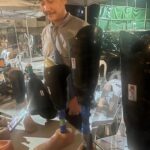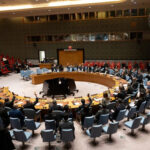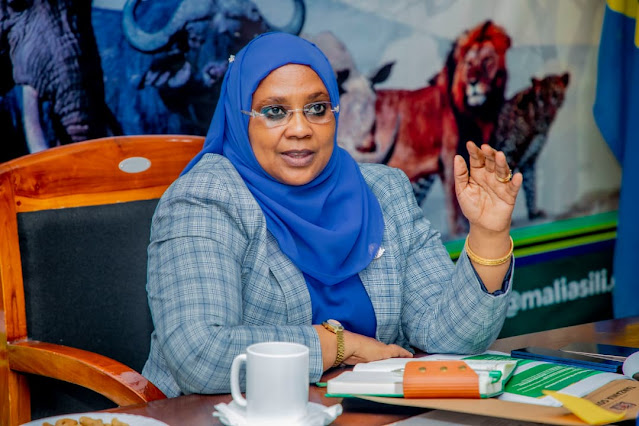
By Sultani Kipingo
The Jakaya Mrisho Kikwete Foundation (JMKF), in collaboration with the Impact Leadership Academy (ILA) and the Sneakers and Heels (S&H) women’s mentorship platform, has formally launched the Kinara Young Women Leaders Mentorship Programme, a two-year initiative designed to empower young Tanzanian women at the early stages of their professional journeys.
The launch ceremony, held on September 2, 2025 at the famous Oasis Village and Club in Mbezi Beach, Dar es Salaam, and presided over by Ambassador Mwanaidi Sinare Maajar, Chairperson of the University of Dar es Salaam Council, a member of the JMKF Board of Trustees, and a seasoned diplomat and barrister.
In her keynote address to the inaugural cohort of 25 participants, Ambassador Maajar reflected on the challenges and responsibilities of leadership. She underlined that the most demanding, yet ultimately the most essential, quality of leadership is the ability to lead oneself. Leadership, she reminded the young women, is not an abstract principle but is expressed through the smallest of daily actions.
She explained that the number one challenge in leadership is precisely that of leading oneself. One’s own personality matters a great deal, a reality she admitted that she had only fully appreciated later in life when heavier obligations and the demands of managing time came along.
“That is when you see the true measure of yourself,” she reflected. “How disciplined you are, how you look at work, what time you wake up each morning. Are you spiritual? Do you practise self-discipline? How do you mingle with people? What kind of company do you keep? And above all, how do you make choices? Your choices in life will ultimately shape your ability to lead others. That is difficult, and it is where many fail.”
Ambassador Maajar illustrated her point with a simple but telling example. “Take waking up in the morning. If you cannot even make your bed, you have already lost the first battle. My mother would have spanked me for that. And yet that one act defines you from the moment you rise. Making your bed so that when anyone enters the room and it looks neat gives you the energy to step out into the day. That is the first discipline.”
She continued by stressing the importance of spirituality. “Do you kneel down to pray? You do not have to be a nun or a priest. It is about connecting with your creator. That connection is another form of discipline. You cannot truly feel fulfilled unless you leave your room knowing you are not alone. Partnership with your creator gives you the confidence to face the day.”
For Ambassador Maajar, personal leadership is the foundation of all else. “You cannot demand discipline from others while you yourself have none,” she reminded the cohort.
The programme’s name, KINARA, holds dual meaning. It is both an acronym for Knowledge, Inspiration, Network, Action, Resilience and Accountability and a Swahili word meaning “beacon”. This symbolism captures both the intellectual framework underpinning the initiative and the role that young women leaders can play as guiding lights for society, helping move it towards greater equity and progress.
Drawing on insights from more than 30 established women leaders across diverse sectors, the Kinara Programme combines structured learning modules with intensive face-to-face training and sustained mentorship. Participants in this first cohort have been drawn from a wide range of industries to maximise the reach and influence of the programme.
Ms Vanessa Anyoti, Chief Executive Officer of JMKF, explained that the initiative was conceived to help bridge a significant leadership gap. “Research shows that women represent less than 30 per cent of formal leadership positions in Tanzania and across Africa. This is a serious imbalance. That is why we need programmes like Kinara — to increase the number of young women entering, thriving, and excelling in leadership positions.”
She went on to stress that the programme’s first phase will support a substantial number of young women, equipping them with the knowledge and skills to become visionary leaders who can contribute positively to their communities, workplaces, and the wider nation. She also noted that the professions represented among the participants include law, financial services, creative industries, telecommunications, beverages and manufacturing, multinational technology companies, aviation, mining and energy, alongside other key sectors.
Also speaking at the event, Ms Zuhura Muro, Managing Partner of ILA, emphasised the strategic focus on women aged between 25 and 35. This, she explained, is a period of life that often represents a difficult and uncertain transition. “We want to ground them, to walk beside them. That is why the mentors — JMKF, Sneakers and Heels, and ILA — have come together to create a pull of support, a circle of trust. The intention is to embrace these young women, to tell them it will be alright. To provide a safe space where they can speak, be heard, and be guided as they rise above that gnawing sense of guilt.”
She elaborated that guilt is a common and corrosive experience at this stage of life. “Many say: I have let down my mother, my aunties. At work, I’m not meeting my Key Performance Indicators (KPIs). It is a heavyweight, and yet this is precisely the moment to remind them that they are valuable, that they matter.”
In designing the Kinara Programme, Ms Muro explained, its architects settled on a three-part structure. The first part focuses on the person. The belief here is that the most vital relationship anyone can cultivate is the one with themselves. Participants are guided to reconnect with their true identity, their authentic self-esteem, to know who they are without judgment.
“They are supported to recognise their strengths, to confront their limitations, and to develop the courage to stretch beyond those limits. This foundation is not treated as a one-off exercise but as a continuous thread running through the mentorship and every other component of the programme.
The second part addresses the professional journey. “This is where many feel the weight of expectation most acutely — the workplace with its unrelenting KPIs and silent competition. The programme creates room for building competence, sharpening skills, and cultivating resilience. It is not just about ticking boxes but about translating ambition into achievement, rising after failure, and crafting a career that is both purposeful and sustainable. Mentors stand beside participants, offering wisdom and the tools to navigate professional complexity.
The third and final part extends outward to the community. Leadership is never about the self alone; it is about service to others. The programme, therefore, invites young women to see themselves as contributors to something larger, encouraging them to engage, to network, and to build relationships that inspire change. This is where accountability takes root, where they are reminded that every choice has a ripple effect.
Together, these three parts — personal, professional, and community — form the backbone of Kinara. They ensure that the young women do not merely survive this transition but emerge stronger, more assured, and fully alive to their own worth.
The Kinara initiative is a reaffirmation of the commitment to preparing the next generation of leaders, equipping young women with the confidence, skills, and networks required to succeed. It also aims to nurture a generation of leaders who are both visionary and pragmatic, capable of driving change and shaping the future of Tanzania and the African continent in general























